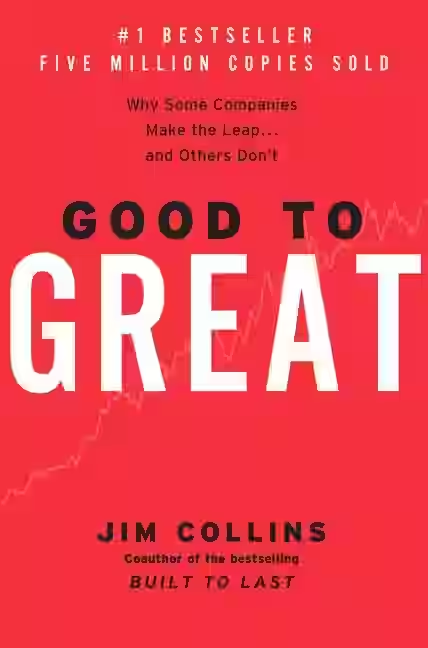
In Good to Great, Jim Collins investigates why some companies make the leap from being merely good to truly great—and sustain that performance. Based on extensive data analysis and case studies, Collins identifies key factors behind this transformation, including disciplined people, thought, and action. Central concepts include the Hedgehog Concept, Level 5 Leadership, and the Flywheel Effect. The book argues that greatness comes from building a culture of excellence, facing brutal facts, and staying focused on long-term goals. Insightful and accessible, Good to Great is widely considered essential reading for leaders aiming to build high-performing, resilient organizations.
About Jim Collins
Jim Collins is a business researcher, author, and speaker renowned for his deep analysis of what makes companies successful over time. Formerly a faculty member at the Stanford Graduate School of Business, he is best known for Built to Last and Good to Great, both of which synthesize extensive data and case studies into accessible, actionable insights. Collins’s research emphasizes disciplined leadership, strategic focus, and organizational culture. He coined influential concepts like Level 5 Leadership and the Flywheel Effect. Collins continues to advise leaders worldwide, helping organizations build lasting impact through rigorously tested principles of performance and endurance.
Other Books by Jim Collins
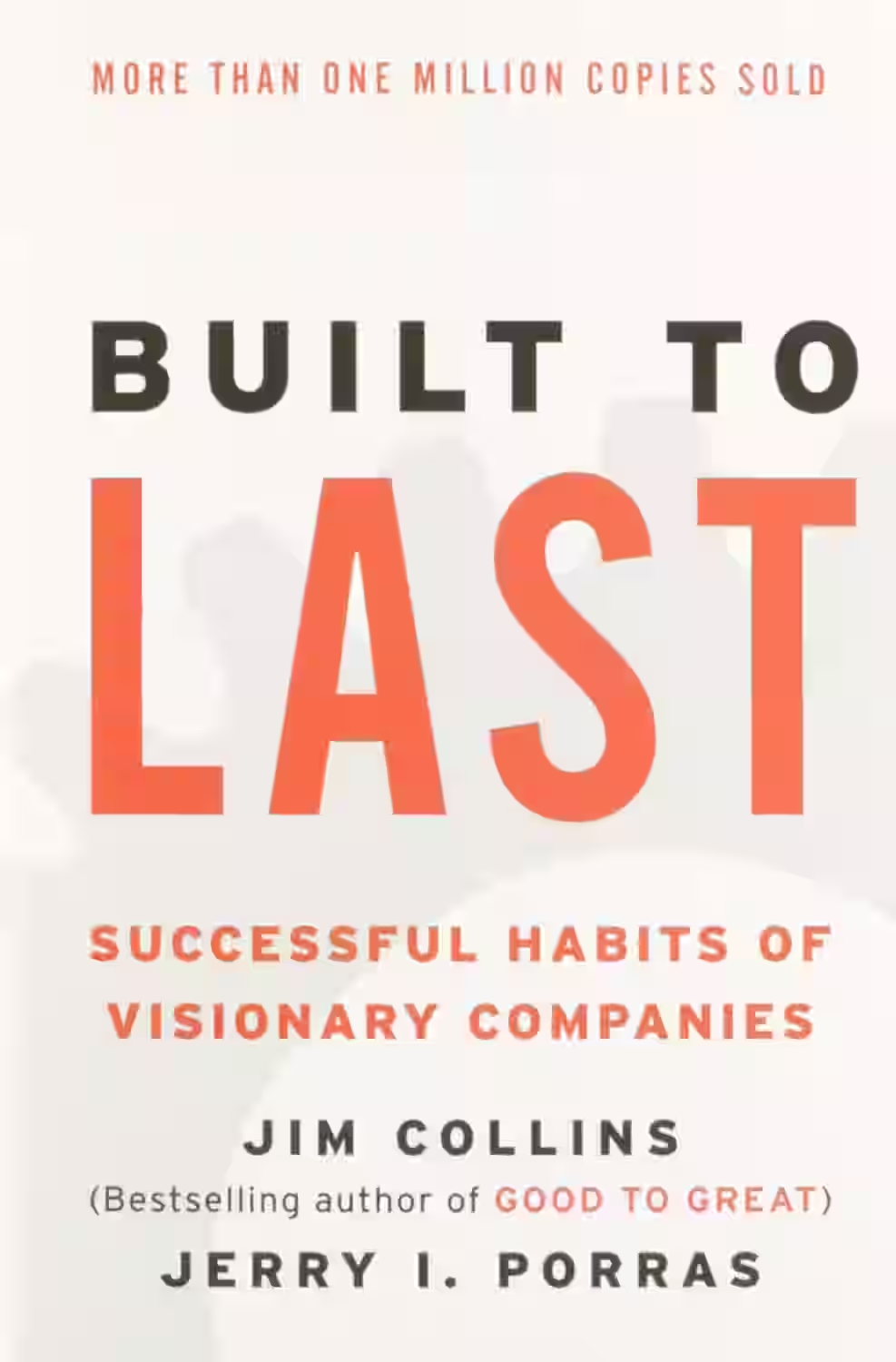
Built to Last
Built to Last explores what makes companies endure over decades, based on a six-year research project studying 18 visionary firms. Collins and Porras identify key traits shared by long-lasting companies, such as core values, bold missions, and a relentless drive for progress. The book challenges the idea that great leadership or market timing is the key to success, instead emphasizing organizational culture and consistency. Concepts like “clock building” versus “time telling” illustrate how lasting companies focus on systems, not individuals. With timeless lessons and real-world examples, Built to Last is a blueprint for sustainable, principle-driven business success.
Similar Books

Delivering Happiness: A Path to Profits, Passion, and Purpose
by Tony Hsieh
In 'Delivering Happiness: A Path to Profits, Passion, and Purpose,' Tony Hsieh, the CEO of Zappos, shares his personal journey and the principles that guided his successful business ventures. Hsieh emphasizes the importance of company culture, customer service, and employee happiness in achieving long-term success. Through engaging anecdotes and practical strategies, he illustrates how focusing on delivering happiness to all stakeholders, from customers to employees, can lead to both personal fulfillment and financial prosperity. This book serves as a compelling and insightful guide for entrepreneurs, business leaders, and anyone interested in creating a more fulfilling work environment.
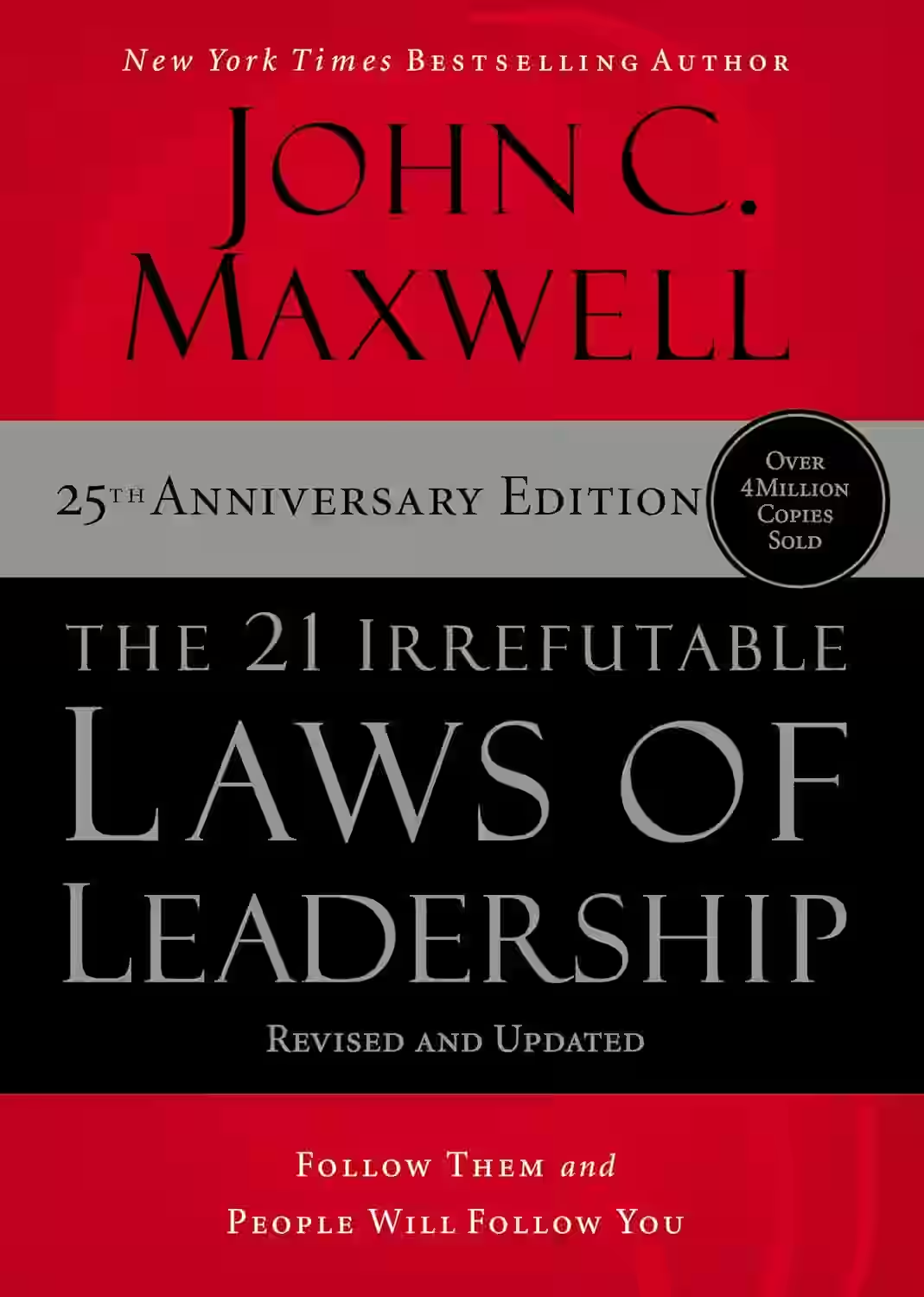
The 21 Irrefutable Laws of Leadership
In 'The 21 Irrefutable Laws of Leadership' by John C. Maxwell, readers are taken on a transformative journey through the fundamental principles that govern effective leadership. Maxwell, a renowned leadership expert, eloquently presents 21 laws that are essential for anyone looking to enhance their leadership skills and influence. Each law is illustrated with insightful anecdotes, real-world examples, and practical tips that readers can apply in their own lives and organizations. From 'The Law of Influence' to 'The Law of Navigation,' this book offers a roadmap for aspiring and seasoned leaders alike to reach their full potential. Through engaging storytelling and expert guidance, Maxwell equips readers with the tools they need to become successful and respected leaders.
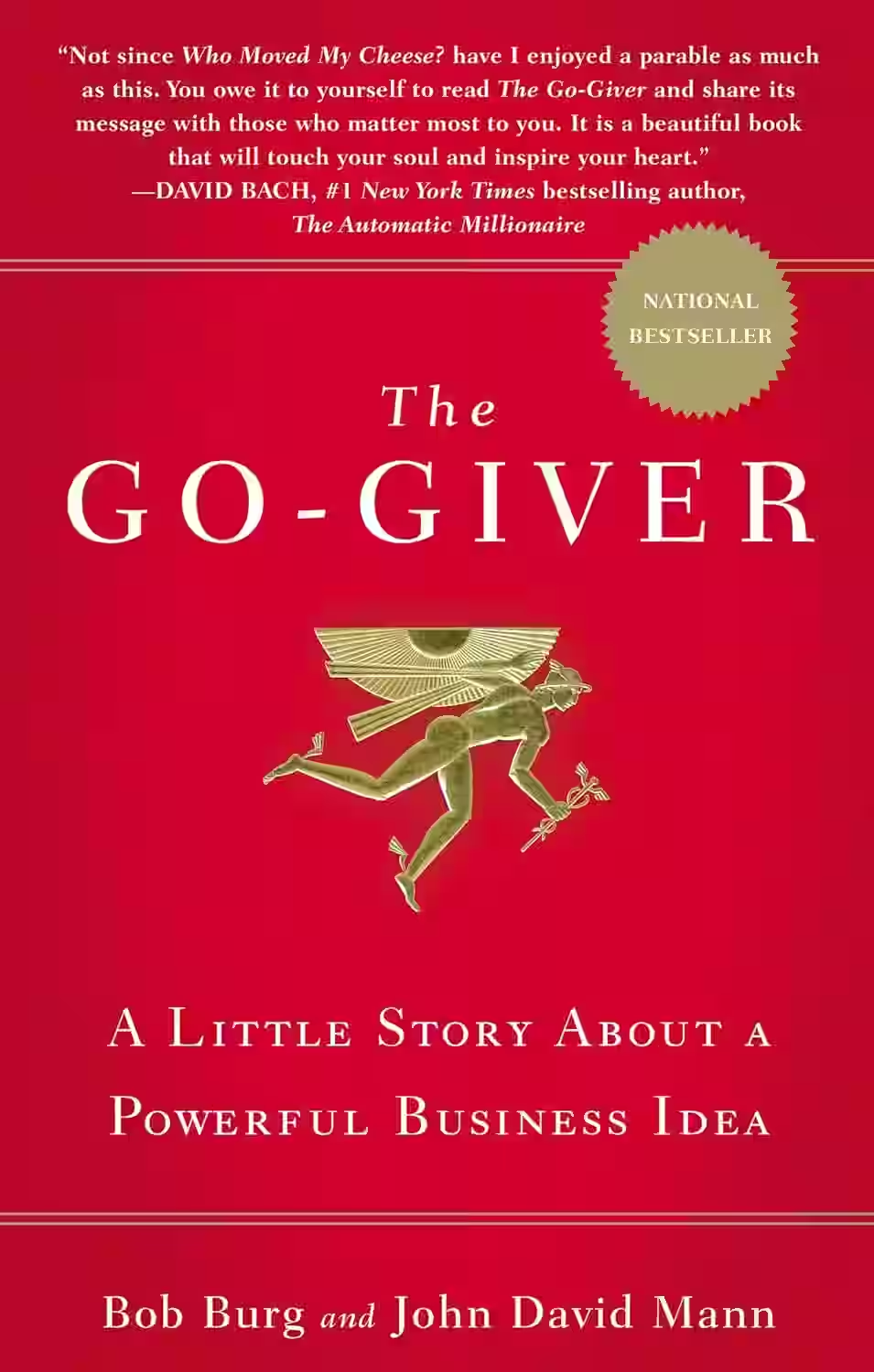
The Go-Giver
In 'The Go-Giver,' Bob Burg weaves a compelling narrative that challenges traditional notions of success and business. The story follows a young, ambitious professional named Joe who discovers the secrets of genuine success through the mentorship of a wise businessman named Pindar. Through a series of encounters with influential individuals who embody the five laws of stratospheric success, Joe learns valuable lessons about the power of giving, receptivity, authenticity, and more. This book is a powerful and inspiring read that explores the profound impact of putting others' interests first and fostering meaningful connections in both personal and professional endeavors.
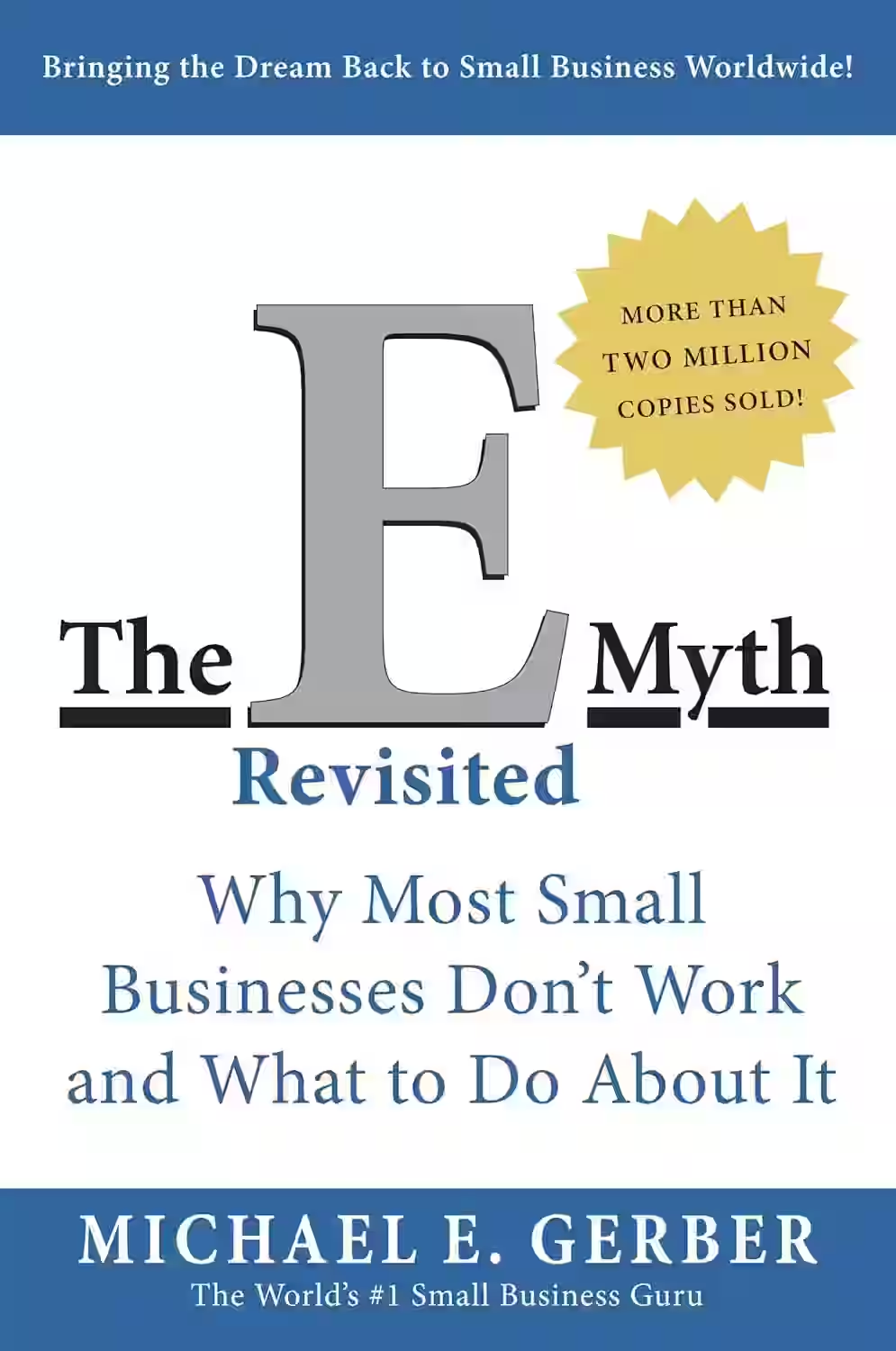
The E-Myth Revisited
The E-Myth Revisited challenges the assumption that most small businesses are started by entrepreneurs. Michael E. Gerber argues that many founders are actually “technicians” who struggle with running a business. The book offers a clear framework for building a business that can scale and function independently of the owner. Gerber emphasizes the importance of systems, standardization, and working “on” the business rather than just “in” it. Through the fictional story of a struggling bakery owner, he illustrates common pitfalls and provides actionable solutions. This book is a foundational read for anyone seeking to grow a sustainable, replicable business.